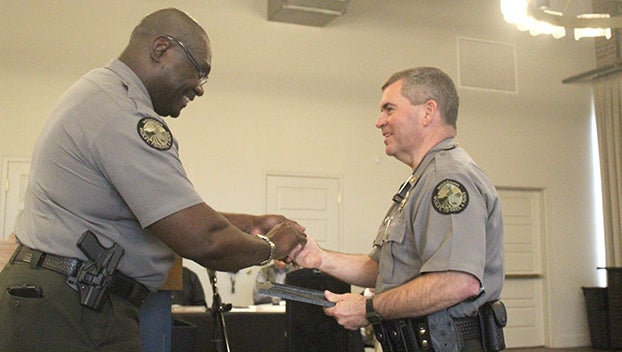National Weather Service offers severe weather safety tips
Published 2:00 pm Tuesday, April 4, 2023

- METRO Storm cloud
It pays to be safe when storms are coming.
In the aftermath of tornadoes and other severe weather impacting Mississippi recently, as well as anticipated upcoming storms, the National Weather Service in Jackson has advice for residents when severe weather comes their way.
Defining terms
A severe thunderstorm is defined as any storm that has hail of at least 1-inch diameter (quarter size), winds of 58 mph or greater, or tornadoes, or any combination of the three.
Some people have difficulty with the difference between a storm watch and a storm warning. In a watch, conditions are favorable for severe weather — severe weather is possible during the time of the watch. A watch can be for several hours, covering a large geographic area, and is usually issued before the severe weather occurs in order to give residents a “heads up” that weather conditions may be rapidly changing. If a watch is issued, residents have some time to prepare.
A warning means that severe weather is already occurring or will occur any moment. Warnings are usually over a shorter period of time and a smaller geographic area. If a warning is issued, residents of that location should take cover immediately and activate their severe weather plan.
Safety tips
If there is a tornado warning, take cover in a sturdy building. The best place in a house or building is the lowest floor and in an interior room away from windows. Basements, hallways, closets, bathrooms and storm shelters are good options.
Protect your head from flying debris, with something other than your hands. Use blankets, pillows, helmets, mattresses and similar items.
Mobile homes are not safe shelters. Find a neighbor or friend to stay with in a sturdier structure, or take shelter in a ditch as a last resort.
Never try to outrun a tornado in a vehicle. Get out of the car and into a sturdy building. If none is close by, lay flat in a ditch. Highway overpasses are not safe shelters. Winds speed up as they travel beneath an overpass, creating a danger to those underneath.
If you can hear thunder, you are close enough to be struck by lightning. Take shelter indoors. Do not use appliances, landline telephones, or take a bath or shower while there is lightning. If stuck outside, do not attempt to take shelter beneath a tree. Try to get under a roof of some sort.
If traveling, do not attempt to cross a flooded road. It only takes 1 to 2 feet of flowing water to wash away any car, and 6 inches of flowing water can wash an adult person off their feet. Water can also make damaged roadways invisible, or cover downed power lines. The risk is not worth your life or that of your imminent rescuer.
Keep a NOAA Weather Radio with fresh batteries handy. Severe weather often comes at night when least expected. A weather radio can alert you with warnings for your area.





